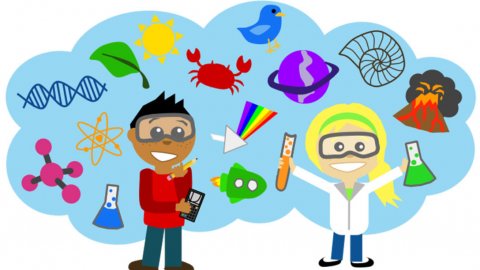At Cononley Primary School, we recognise the importance of Science in every aspect of daily life. As one of the core subjects taught in Primary Schools, we give the teaching and learning of Science the prominence it requires. We encourage our pupils’ natural curiosity of the world and teach the knowledge and enquiry skills to develop their understanding of the world.
What our pupils will learn (intent)
At Cononley Primary School, the EYFS Curriculum for Understanding the World is taught in variety of ways through adult-led and adult-supported tasks and child-initiated learning in well-resourced provision areas, both indoors and outdoors. The themes are linked to the Scheme of Work for Key Stage 1 to ensure progression as pupils move from EYFS to Key Stage 1. We use the North Yorkshire Scheme of Work for Science to deliver the National Curriculum for Science throughout Key Stage 1 and 2. The scheme of work is well-sequenced, practical, creative and engaging. The Scheme of Work incorporates planned opportunities to carry out the different types of scientific investigation required by the National Curriculum programmes of study.A rolling programme ensures that the Science topics are taught to all pupils during the Key Stage, taking into account the mixed-age structure of our classes.
How the Science Curriculum will be taught to our pupils (implementation):
In EYFS and Key Stage 1, Understanding the World and Science topics are taught in a block of lessons during a period of approximately two or three weeks each half term. In Key Stage 2, Science lessons take place weekly.
Progress and Assessment in Science
EYFS
Work is recorded in a class Big Book and the book is used to revisit knowledge at regular intervals through the year, to ensure children remember what they have learnt. Regular observations and formative assessments of Understanding the World take place and contribute to a summative assessment at the end of EYFS, using the Early Years Outcomes for Understanding the World.
Key Stage 1
Work is recorded in a class Science Big Book and the book is used to revisit knowledge at regular intervals through the year, to ensure children remember what they have learnt. The information from teacher’s assessments contributes to an end of year summative assessment.
Key Stage 2
Ongoing assessments of pupils' understanding are made each lesson and are used to address any gaps. 'Sticky knowledge' checks are carried out every half term in line with research which shows that retrieval checks of knowledge at regular, spaced intervals (ideally at 2, 6 and 12 weeks after completing a topic) enable knowledge to be transferred to long-term memory. Progress is measured by children knowing and remembering more.
Impact:
The impact of the curriculum will be measured by how much pupils to know and remember our Science curriculum. The impact of the curriculum will be reported at the end of the year. Evidence which will contribute to impact of Science includes results of assessments and sticky knowledge checks, pupil voice, learning walks, lesson observations and and work scrutiny. The Science curriculum will be monitored by the Subject Leader, Headteacher and Science Governor.

